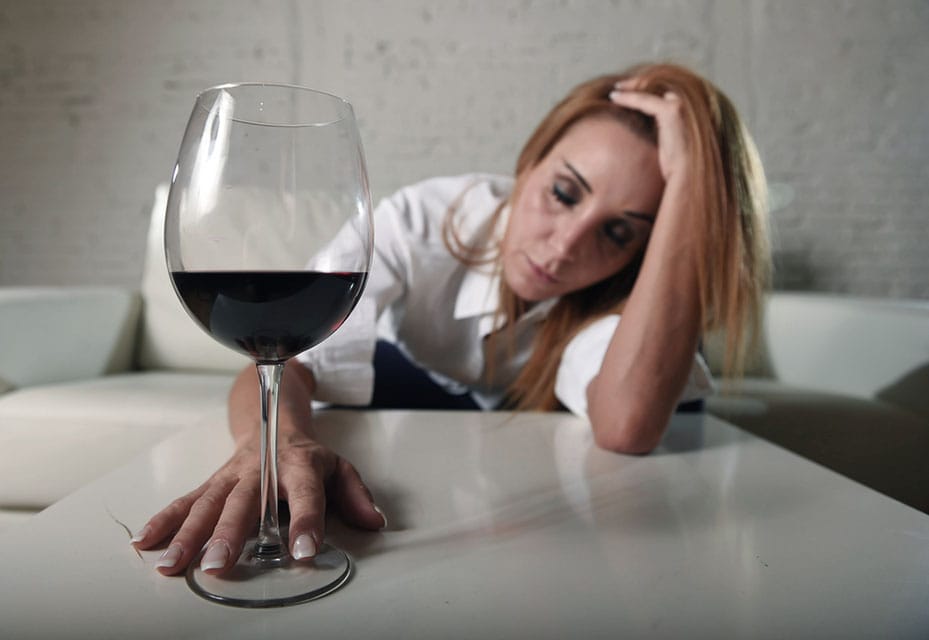Alcoholism and eating disorders affect millions of people throughout the United States. What is the link between alcohol and eating disorders? Let’s look at each to understand. Alcoholism is a chronic and progressive issue characterized by continued drinking despite its negative consequences. An eating disorder is a mental health condition in which individuals engage in dangerous and unhealthy behaviors related to food consumption.
More and more frequently, alcoholism and eating disorders appear in conjunction. These conditions can be highly detrimental to physical and mental health, leading to long-term complications, social difficulties, strained relationships, and even death.
At Recovery Ranch, we understand the complexity of alcohol addiction and disordered eating. Our alcohol rehab center offers comprehensive care for those struggling with drinking and eating disorders. Reach out to us today to start building your individualized recovery plan and get on the path to long-term wellness.
What’s an Eating Disorder?
Anorexia nervosa and bulimia nervosa are eating disorders that typically affect teen and adolescent girls. However, you don’t need to be young or female to struggle with disordered eating. Men, boys, adults, and the elderly can develop anorexia or bulimia.
In essence, those suffering from eating disorders have an intense, often unreasonable, fear of getting fat. However, it’s not only about weight gain. People with anorexia or bulimia typically have body dysmorphia. This condition causes individuals to see themselves as too thin, too large, not shapely enough, or any of a host of personal misconceptions about their bodies.
Often, anorexics reduce their daily caloric intake to almost nothing. Bulimics eat, only to later purge by vomiting, taking laxatives, diuretics, or a combination of all three.
Alcoholism and Eating Disorders
What’s the connection between alcoholism and mental health issues such as disordered eating? Alcoholism can occur as a byproduct of an eating disorder. Individuals may consume most of their daily calories from alcoholic beverages, thinking it will prevent them from gaining weight. Known as “drunkorexia,” people with this condition may also:
- Eat once per day or even less frequently
- Work out during regular mealtimes
- Vomit before a night of drinking
Some bulimics binge on food and alcohol and then vomit both later. Anorexics may rarely eat solid food and consume alcohol to reach calorie goals.
What Causes Drunkorexia?
Although drunkorexia is prevalent among young women, some college-age men have developed it to avoid gaining weight from drinking beer. Some young men engage in drunkorexia to save money, based on the reasoning that they’ll need less alcohol to get drunk if they drink on an empty stomach. Faced with the choice of being able to afford dinner or an evening of drinking, most will choose to drink.
According to some studies, advertisements for low-calorie beers have increased the prevalence of drunkorexia on college campuses. These ads remind students that they need to stay thin and provide them with a way to do it. Some pro-anorexia websites even offer tips on how to drink without gaining weight.
As with standard drinking problems, mental health professionals feel that addiction is at the root of alcoholism and eating disorders. Alcohol addiction and disordered eating may also occur with other psychiatric conditions and personality disorders.
Treatment For Eating Disorders and Alcoholism
At The Ranch TN, we understand the link between alcohol and eating disorders. We know that eating disorders and alcoholism often occur together, creating a complex and challenging situation for individuals seeking recovery. That’s why our treatment approach combines evidence-based methods with individualized care to address both disorders simultaneously.
Our team of highly trained professionals, including licensed therapists, dietitians, physicians and addiction specialists work together to create personalized treatment plans tailored to each person’s unique needs. This comprehensive approach addresses the physical, emotional and psychological aspects of both eating disorders and alcoholism.
Evidence-Based Treatment Methods
We utilize evidence-based treatment methods that have been proven effective in treating both eating disorders and alcoholism. These include:
- Cognitive-behavioral therapy (CBT)
- Dialectical behavior therapy (DBT)
- Acceptance and commitment therapy (ACT)
- Motivational Interviewing
In addition to these methods, we also incorporate holistic practices such as mindfulness, yoga, and art therapy into our treatment programs.
Individualized Care
We provide individualized care that takes into account each person’s background, experiences and specific challenges. Our treatment plans are constantly reviewed and adjusted based on progress and individual needs.
Long-Term Recovery
At The Ranch TN, we believe in providing our clients with the tools and skills needed for long-term recovery. That’s why we offer aftercare programs that provide continued support even after completing our treatment program. We also connect clients with local support groups and resources to help them maintain their sobriety and healthy relationship with food.
Help Is Here at The Ranch TN
When you asking yourself, “What is the link between alcohol and eating disorders?” you need to take a closer look at treatment that can address both aspects. And the time to do that is now.
It takes immense courage to reach out when facing alcoholism and mental health issues. Our compassionate counselors and clinicians can help you overcome alcohol addiction and disordered eating. If you’re ready to take the first step toward wellness, reach out to us today at 1.844.876.7680.


